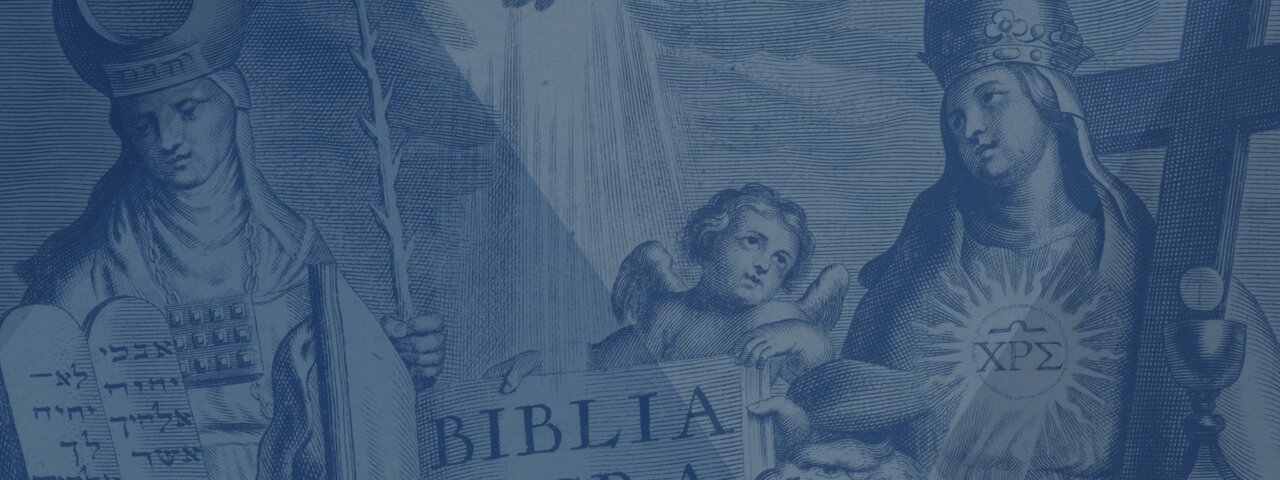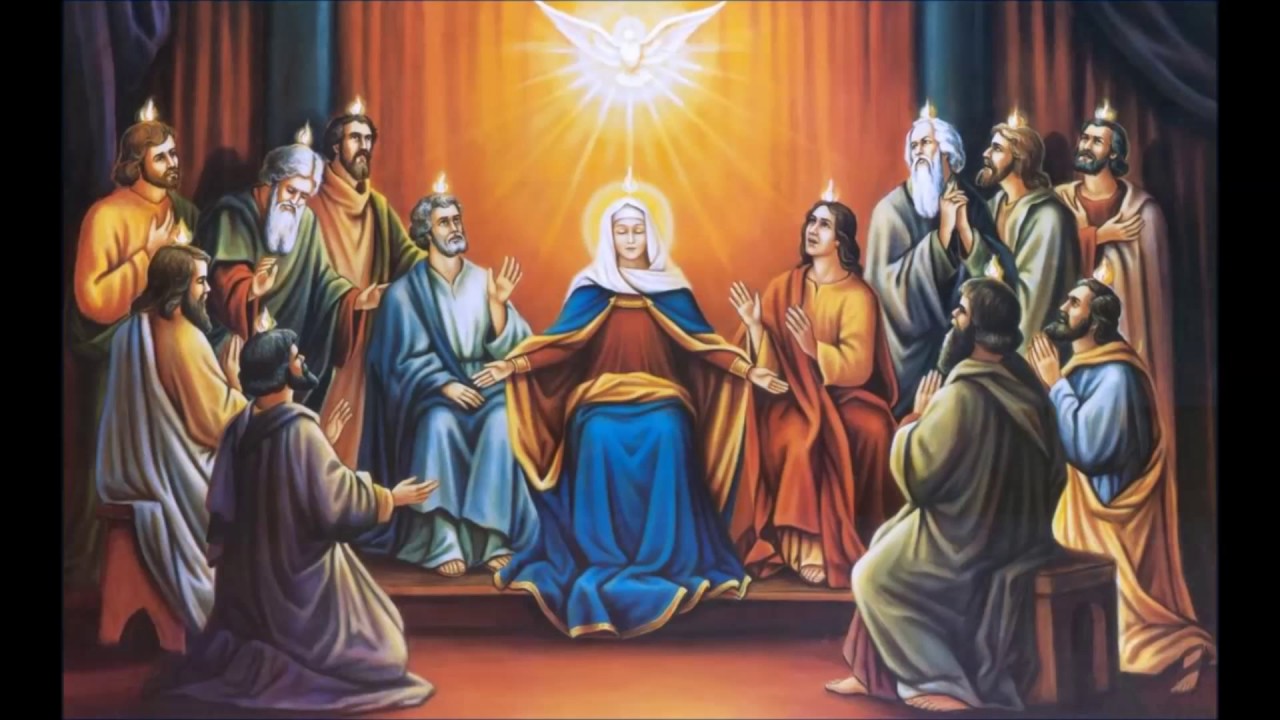This Sunday, we celebrate the feast of Pentecost.
Many people don’t know that the feast of Pentecost (from the Greek Πεντηκοστή, which literally means “50 days”) is actually celebrated by both Christians and Jews, but the celebrations have different meanings. Whereas Jews celebrate God’s giving the Torah to his people at Mount Sinai (in what is called the “Feast of Weeks” or Shavuot), Christians celebrate the descent of the Holy Spirit upon the disciples in the Upper Room. Both feasts happen 50 days after a monumental event—Jews celebrate Shavuot 50 days after the Passover feast, and Christians celebrate Pentecost 50 days after the resurrection of Christ. Yet even though these feasts celebrate something different, both feasts celebrate the outpouring of God’s power and guidance. In fact, we find that the Christian celebration of Pentecost is a completion and fulfillment of what happened at Sinai.
It’s in Acts 2:1-6 where we read that the Holy Spirit descended upon the disciples in the upper room on this Jewish Shavuot:
When the day of Pentecost had come, they were all together in one place. And suddenly a sound ca me from heaven like the rush of a mighty wind, and it filled all the house where they were sitting. And there appeared to them tongues of fire, distributed and resting on each one of them. And they were all filled with the Holy Spirit and began to speak in other tongues, as the Spirit gave them utterance.
me from heaven like the rush of a mighty wind, and it filled all the house where they were sitting. And there appeared to them tongues of fire, distributed and resting on each one of them. And they were all filled with the Holy Spirit and began to speak in other tongues, as the Spirit gave them utterance.
This first “Pentecost” thus marked the indwelling of the Holy Spirit in the disciples. We read in Acts 2:15–17 that after the Holy Spirit had descended, the Apostle Peter told the crowd that this event fulfilled the prophecy in Joel 2:28. It was in this moment that the Church received the gift that Christ had promised (Jn. 16:7): namely, the counselor or helper who would, “teach you all things, and bring to your remembrance all that I have said to you” (Jn. 14:26).
But how is this event related to the Jewish tradition that celebrates the giving of the Torah to the people of Israel at Mount Sinai? On closer inspection, the parallels are actually quite staggering: First, both Pentecosts are celebrated 50 days after a Paschal (Passover) event. Second, we see that the law given to Moses is a kind of guidance, just as the Holy Spirit given at Pentecost provides guidance. We can even see the parallel in terms of physical location: Just as Moses was given the law up on a mountain, so too the disciples were given the Holy Spirit in an upper room (Luke 22:12–13).
What we find is that the Passover and giving of the Torah is actually a prefiguring of the events of Christ. Augustine says as much in his letter Contra Faustum:
“The Pentecost, too, we observe, that is, the fiftieth day from the passion and resurrection of the Lord, for on that day He sent us the Holy Paraclete whom He had promised; as was prefigured in the Jewish Passover, for on the fiftieth day after the slaying of the lamb, Moses on the mount received the law written with the finger of God (Exodus 19). If you read the Gospel, you will see that the Spirit is there called the finger of God. (Luke 11:8)”
The celebration of Pentecost commemorates God’s fulfilled promise that he would guide and help his people. When we remember the Day of Pentecost, we remember what Jesus said, “Think not that I have come to abolish the law and the prophets; I have come not to abolish them but to fulfill them” (Matt. 5:17). The Holy Spirit is the fulfillment of the law given at Sinai; it is the animating power of the Church by which we receive “The charity of God poured into our hearts” (Rom. 5:5). On this feast of Pentecost, we remember this great gift.






What is the difference between Logos and Verbum? Also, do I see the workings of the software behind the blog article?
Verbum is just the Catholic version of Logos 5. Some of the main differences between Verbum and Logos 5 are:
1)Verbum adds specialized Catholic collections (Catechism, Church Fathers, Church Documents) that you can explore and search.
2)Verbum prioritizes different resources by default such as the Catholic Lectionary and Catholic Bibles.
3)Your homepage in Verbum will highlight Catholic pages and products, such as the Verbum Blog (something I recommend checking out and interacting with!) and other new titles that have been released.
But most of all there are different resources available in the Verbum packages than the Logos 5 packages (such as the Lectionary, Catechism, certain Church Documents, etc.)
And yes, you do see the workings of Verbum in here! I used it to look up the word Pentecost, as well as search for the quote from Augustine to Faustus on the topic of Pentecost.